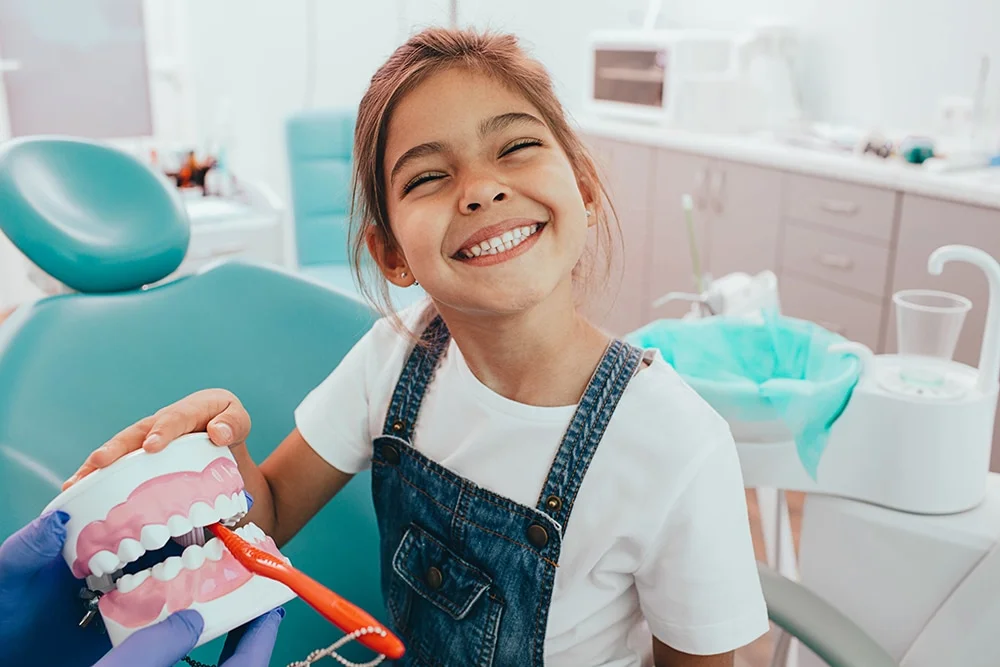Orthodontic care plays a vital role in maintaining proper dental health and alignment throughout a person’s life. While many people associate orthodontic treatment with teenagers sporting braces, early childhood screening is becoming increasingly recognized as essential for identifying and addressing potential issues before they become more serious.
Understanding what to expect during orthodontic screening at Windermere Orthodontics center in early childhood can help parents and caregivers navigate the process effectively.
Why Early Screening Matters?
Early orthodontic screening, typically recommended around the age of 7, allows orthodontists to assess a child’s dental development and identify any potential issues. At this age, the child’s permanent teeth are beginning to emerge, and the jaw is still developing. Early detection of problems such as overcrowding, misalignment, or bite issues can lead to more effective and less invasive treatment strategies.
What to Expect During the Screening
Comprehensive Examination: The orthodontist will conduct a thorough examination of your child’s teeth, gums, and jaw. This examination may involve visual inspection, X-rays, and other diagnostic tools to assess the alignment of the teeth and the development of the jaw.
Assessment of Bite: The orthodontist will evaluate how the upper and lower teeth come together when the child bites down. Issues such as overbites, underbites, crossbites, and open bites may be identified during this assessment.
Evaluation of Jaw Development: Since the jaw is still growing during childhood, the orthodontist will assess its size and position. Problems with jaw development can affect the alignment of the teeth and may require intervention to ensure proper growth and alignment.
Discussion of Findings: Following the examination, the orthodontist will discuss their findings with you and your child. They will explain any potential issues that were identified and recommend a course of action, if necessary. This may include monitoring the child’s dental development over time or recommending early orthodontic treatment.
Treatment Options: If treatment is recommended, the orthodontist will discuss the available options with you. Depending on the nature of the issues identified, treatment may involve braces, clear aligners, palatal expanders, or other orthodontic appliances. The orthodontist will explain the benefits and potential outcomes of each treatment option to help you make an informed decision.
Future Monitoring: Even if no immediate treatment is needed, the orthodontist may recommend periodic check-ups to monitor your child’s dental development as they continue to grow. This allows any potential issues to be identified and addressed promptly, minimizing the need for more extensive treatment later on.
Benefits of Early Orthodontic Screening
Early orthodontic screening offers several benefits for children:
Prevention of Future Problems: By identifying and addressing issues early, it’s possible to prevent more serious dental problems from developing later in life.
Improved Treatment Outcomes: Early intervention can lead to more effective treatment outcomes, as it takes advantage of the child’s natural growth and development.
Reduced Treatment Time and Cost: Addressing orthodontic issues early may reduce the need for extensive treatment later on, potentially saving both time and money.
Enhanced Self-Esteem: Correcting dental issues early can improve a child’s self-esteem and confidence, as they won’t have to deal with visible dental problems during critical developmental stages.
Orthodontic screening in early childhood is an important step in maintaining proper dental health and alignment. By identifying potential issues early, orthodontists can recommend timely interventions to ensure optimal oral health and prevent more serious problems from developing. Parents and caregivers should schedule regular dental check-ups for their children and follow their orthodontist’s recommendations for screening and treatment to promote healthy smiles for life.
